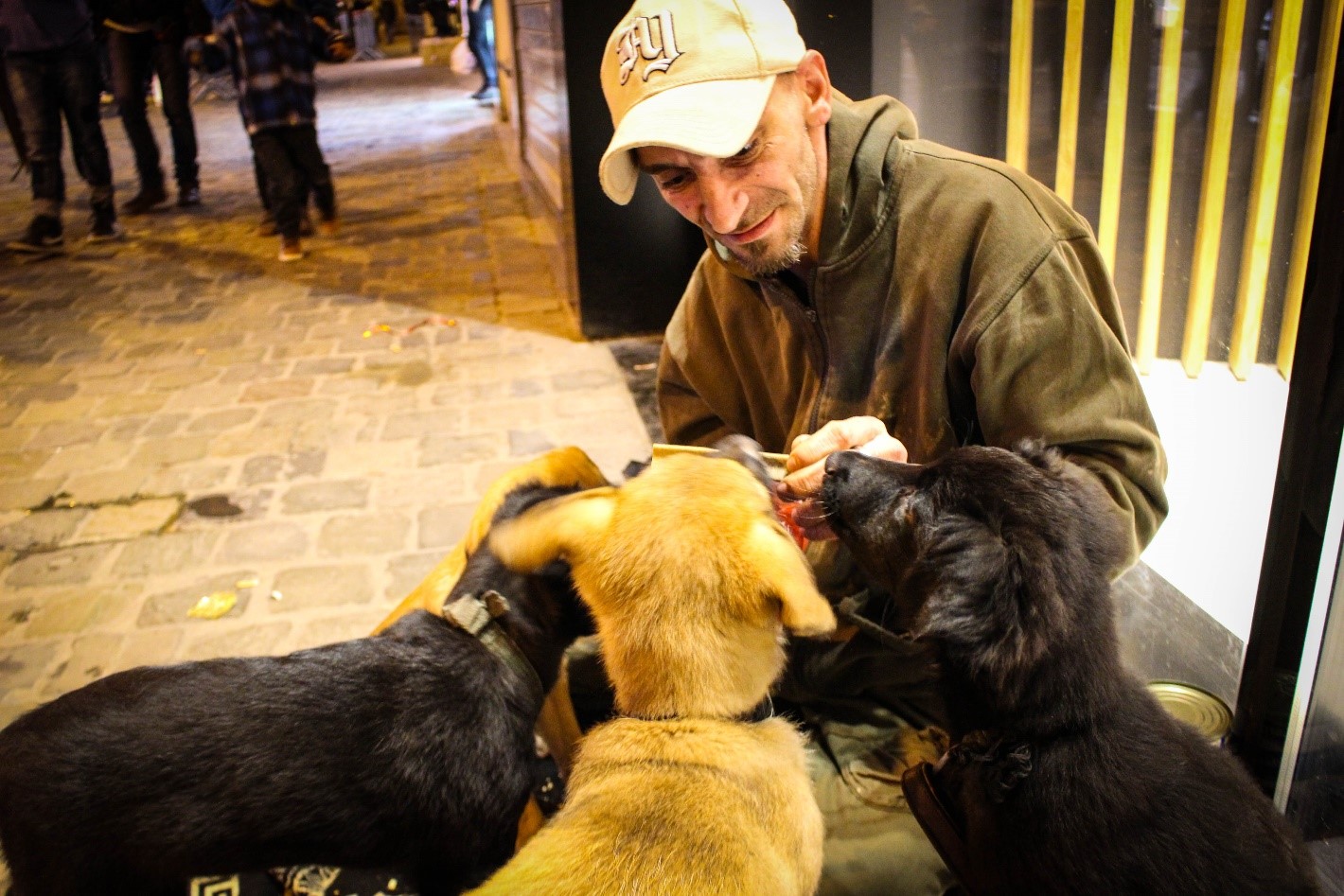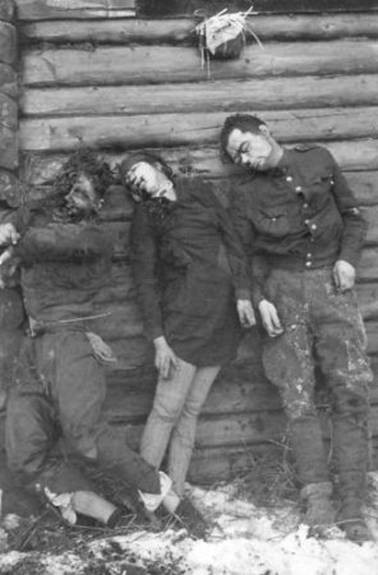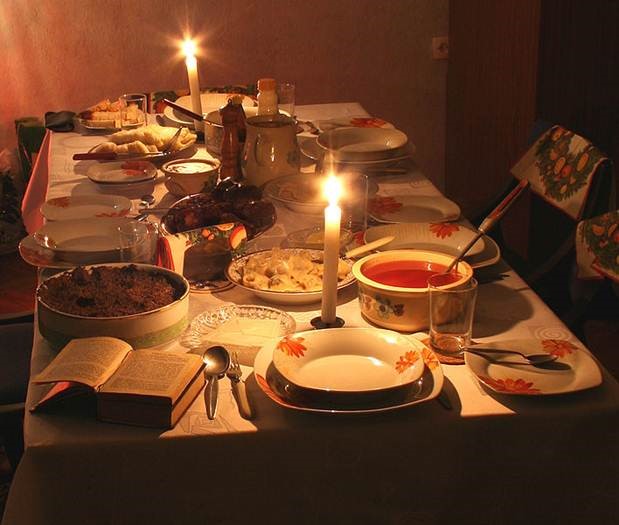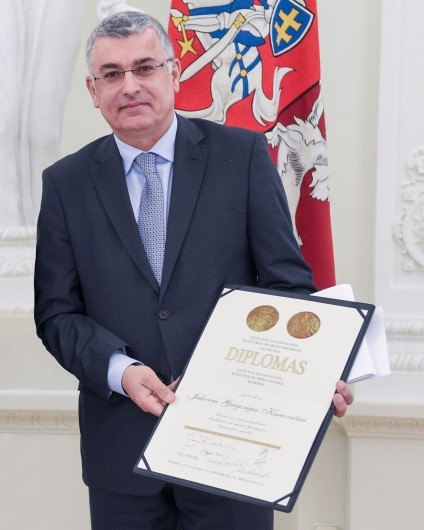
THE VOICE OF INTERNATIONAL LITHUANIA
|
VilNews has its own Google archive! Type a word in the above search box to find any article.
You can also follow us on Facebook. We have two different pages. Click to open and join.
|
Author Archive
- Posted by - (0) Comment

Lost Birds by Birute Putrius
Published by Birchwood Press
Lost Birds tells the stories of the generation of Lithuanians who, like lost birds, flee the advancing Soviet Army at the end of World War II. They land in displaced persons camps in Germany and later are given refuge in America.
It’s the story of their children, Irene Matas and her friends who struggle to become American and yet not lose their identity in their tight-knit Lithuanian Communities. But as they grow and spread their wings, they begin to rebel in their search for a wider world.
These stories are in turn tragic, funny, magical and elegiac. In the last story, when Lithuania regains its freedom, a group returns to visit relatives, only to find the country sadly changed by the many years of Soviet occupation. And Irene finds something surprising there.
The paperback book is $16.00, while the Kindle and Nook version is $9.99. Both can be found on Amazon and Barnes and Noble online, and Booktopia in Australia.
- Bookmark :
- Digg
- del.icio.us
- Stumbleupon
- Redit it
- Posted by - (18) Comment
By Aage Myhre, Editor-in-Chief
Close to 50% of all Lithuanians live outside their home country as there through nearly 200 years has been wave after wave of emigration from Lithuania.
In the 1800s there were many who emigrated because of poor conditions in the home country, as well as repression and persecution of Tsar Russia that occupied Lithuania over the period 1795 - 1915. When Lithuania again was a free country in the period 1918-1940, there was a small number, often intellectuals, who returned to their homeland.
Towards the end of WWII, when Stalin's Red Army was ab of the out to push Hitler Germany's troops back, there were hundreds of thousands who fled westward to avoid deportation to Siberia and similar abuse. Many of those who remained in Lithuania when the Iron Curtain fell, were deported to the cold hell far east. Tens of thousands were killed during the guerrilla warfare that raged in the Baltic region in the years 1944-1953 and later.
During the 46 years when Lithuania was occupied by the Soviet Union from 1944 to 1990 there was only sporadic contact between the inhabitants and the large diaspora in western countries, particularly the US and Australia, but Lithuanians never gave up the hope that their homeland would again be free and independent.
In 1990-1991, this happened after underground forces for many years had worked for such a detachment from the Soviet yoke.
In 1991 Lithuania's population about 4.7 million, but today's emigration to Western Europe and the United States has resulted in dramatic decrease in population, and there now lives only about 2.9 million in the very country.
Lithuania is thus today a nation spread over many countries around the world, and it requires a lot of prudence and good communication to keep this nation together and to keep Lithuanian language and culture alive all over the world.
Below we present some stories from past and present describing how Lithuanians have emigrated or fled from their home country, and how they over the years have established themselves in various countries and cultures.
|
Lithuania’s second capital |
in Australia after WW2 |
South Africa are from Lithuania |
|
Lithuania 2 years ago |
to say they love me |
University to modeling in Milan |
|
Venezuela! |
force, one to be desired and respected as an ally on behalf of Lithuania |
hearts and minds for the sake of a new Lithuania |
Go to our SECTION 7 to read many more stories about Lithuanians in the world …
- Bookmark :
- Digg
- del.icio.us
- Stumbleupon
- Redit it
- Posted by - (5) Comment
By Dr. Boris Vytautas Bakunas,
Ph. D., Chicago
A wave of unity sweeps the international Lithuanian community on March 11th every year as Lithuanians celebrated the anniversary of the Lithuanian Parliament’s declaration of independence from the Soviet Union in 1990. However, the sense of national unity engendered by the celebration could be short-lived.
Human beings have a strong tendency to overgeneralize and succumb to stereotypical us-them distinctions that can shatter even the strongest bonds. We need only search the internet to find examples of divisive thinking at work:
• ”50 years of Soviet rule has ruined an entire generation of Lithuanian.”
• ”Those who fled Lithuania during World II were cowards -- and now they come back, flaunt their wealth, and tell us ‘true Lithuanians’ how to live.”
• ”Lithuanians who work abroad have abandoned their homeland and should be deprived of their Lithuanian citizenship.”
Could such stereotypical, emotionally-charged accusations be one of the main reasons why relations between Lithuania’s diaspora groups and their countrymen back home have become strained?
As psychiatrist Dr, Aaron T. Beck and others have noted, accusatory remarks are often perceived as threats by those targeted for verbal attack. Recriminations follow and escalate into verbal shooting matches that solidify hostilities between individuals and groups that previously enjoyed friendly relations.
Although debate is an inevitable and even desirable characteristic of free democratic societies, inflammatory finger-pointing can undermine a country’s national cohesion, political stability, and economic development. As individuals, what can we do to curb the spiral of anger-promoting speech that has surfaced within the world-wide Lithuanian community?
Learn and Teach Tolerance
Anger short-circuits our rational faculties, undermines problem-solving, alienates us from our fellow human beings, and puts us at increased risk for high blood pressure, heart disease, and a host of other illnesses. By learning to adopt a tolerant attitude towards what others say or do, we not only help ourselves, but we help others. As Albert Einstein said, "Example isn't another way to teach, it is the only way to teach."
The next time you feel the impulse to respond angrily to inflammatory accusations, remember that those making them are in the throes of anger themselves. Or they are venting their rage by trying to provoke you. In either case, what they say or write does not merit being taken seriously.
We can disengage from inflammatory rhetoric by using our reason to identify the logical fallacies of their statements. To say that Soviet rule has “ruined an entire generation of Lithuanians” is a gross overgeneralization. As Vilnius-born poet Sergey Kanovich, son of the prominent novelist Grigorijus Kanovicius, has pointed out, “Life is not all black and white…Good people were sometimes brought up in Soviet Lithuania and even led Sajudis.” Similarly, to characterize all Lithuanian Americans as wealthy cowards is to stereotype a mass of individual human beings -- most of whom are hard-working and far from rich -- with a highly pejorative label.
Instead of responding to slurs, we can simply ignore them. Eleanor Roosevelt said that “nobody can make you inferior without your permission.” If you do choose to respond, it’s best to state your position objectively, focusing on facts and offering productive solutions.
Judgmental references to Lithuanians, Lithuanian-Americans, or any other group of people are virtually meaningless unless accompanied by qualifying words like some, many, often, or occasionally. In the absence of qualifiers, people tend to interpret group labels in absolute terms that fail to capture the individuality of others. By avoiding overgeneralizations and stereotypes, we can curb our human inclination towards impulsive irrational thinking and set an example for others to follow.
Strengthen Cultural Bonds
Another way we can help reduce divisiveness in the world-wide Lithuanian community is by participating in cultural events and organizations that emphasize what Lithuanians have in common. While political activities often divide people, cultural activities strengthen the bonds that tie them together.
During an interview at the March 11th Lithuanian independence celebration, Agne Vertelkaite, Cultural and Economic Affairs Officer at Consulate General of the Republic of Lithuania in Chicago, said that “Cultural events and activities provide Lithuanians abroad and at home with a particularly effective way to preserve their sense of national identity.” As an example, she cited the Lithuanian youth folk dance group Ugnele from Vilnius which performed in St. Louis on March 9th and in Chicago on March 11th, 2012 under the sponsorship of the Lithuanian government.

Cultural activities have long been one of the mainstays of preserving national identity in the Lithuanian Diaspora. The Viltis Theater troupe established under the leadership of Lithuanian actor Petras Steponavičius, who sadly passed away in 2015, includes members spanning three generations of Lithuanian emigration.
Just as the internet can spread divisiveness and hate, so it can serve as a tool for opening channels of communication and strengthening national cohesion. . E-magazines like VilNews as well as Facebook pages like “We Love Lithuania,” “Our Mom’s Lithuanian Recipes,” and “The National Lithuanian American Hall of Fame” are just a few of the of internet sites where Lithuanian cultural achievements, traditions, and customs are gaining widespread appreciation.
By taking part in Lithuanian cultural activities, we can refuse to submit to the stereotypical thinking that divides us. Instead of forming in-groups and out-groups, we can transcend negligible and temporary differences and help cultivate a sense of national unity and mutual understanding. As internationally-renowned American-Lithuanian film-maker Jonas Mekas has pointed out, a small country like Lithuania cannot allow itself to give away her children.
References:
Beck, A. T. (1999). The cognitive basis of anger, hostility, and violence. New York: Harper Collins.
Dozier, R. W. (2002). Why we hate: Understanding, curbing, and eliminating hate in ourselves and our World. New York: McGraw-Hill.
 |
BORIS VYTAUTAS BAKUNAS I’m an educational psychologist and independent consultant whose major goal is to share the learning, thinking, and emotional self-help skills that will help people of all ages achieve the things they want out of life – in school, on the job, and in daily life. I’m also a teacher with over 29 years experience at the junior high, high-school, and college levels. Currently I teach graduate professional development courses for educators at St. Xavier University/International Renewal Institute, where my students say I’m “a knowledgeable, down-to-earth instructor with a great sense of humor.” I say, “If you love what you do, a sense of humor comes naturally.” My formal educational background includes Master's degrees in English and Special Education, and a PhD in Educational Psychology from the University of Illinois at Chicago. My research and articles have appeared in Applied Psycholinguistics, Learning, Principal, The Clearinghouse, and Education Digest. I’ve been a full member of the American Psychological Association since 1994. |
THE ABOVE VilNews ARTICLE WAS FIRST TIME PUBLISHED IN 2012
Comments from 2012
A poignant article that touches on the root causes of bias and discrimination. Throughout Lithuanian history, the Lithuanian people showed unity, determination and resiliency to overcome 200 years of foreign occupations that, once again, resulted in a free and sovereign nation. Today, it is only through unity, determination and resiliency by Lithuanians, in Lithuania and abroad, that Lithuania can move forward and reclaim her place on the world stage.
Although, physically, Lithuanians may live oceans apart, pushing each other further away only hinders the progress of the Lithuanian nation. As this article points out, cultural promotion and exchange between all Lithuanians can solidify and preserve our national identity. Organizations, such as, the National Lithuanian Hall of Fame, and the newly established Lithuanian-American Theater "Viltis" seek to promote Lithuanian culture in America, and at the same time, reach out and recognize achievements of Lithuanians in Lithuania.
One only has to look at history to learn that peoples united for a purpose or cause will always achieve their goals.
Why would there be ANY political differences among Lithuanian-Americans, at least for those over age 40 who are fully Lithuanian?? Do actual Lithuanians who lived under communism support any party which proposes to do the same thing to America that Russia did to Lithuania?? HOW can there be political divisiveness among Lithuanians who were old enough to witness the terrors and the gulags?
One of the outstanding features of VilNews is how it publishes articles highlighting the achievements of Lithuanians around the world as well as the harsh realities of the past.
In 2011, two highly-acclaimed novels about the horrors of Soviet oppression were published. "Between Shades of Gray" by Ruta Sepetys told the story of a fifteen-year-old girl who along with her family was exiled to Siberia. Both hard-cover and paperback editions of "Between Shades of Gray" hit the New York Times best-seller list..
Antanas Sileika's novel "Underground" depicts the armed resistance of the Lithuanian partisans against the Soviet invaders and their collaborators. "Underground's" Lukas, is based on Lithuania's most famous partisan, Juozas Luksa--Daumantas. :"Underground" was picked as on of the best novels in English published in 2011 by The Globe and Mail. I have heard that the United States edition of Sileika's novel will be published within a few weeks.
2011 also saw the publication of Ellen Cassedy's book "We Are Here," which recounts the author's personal quest to understand how the people of Lithuania -- Jews and non-Jews -- are dealing with the horrors of the Nazi and Soviet past in order to build a new and better future. Ellen was inspired to write her book when her uncle, a Holocaust survivor, gave her a slip of paper and said, "Read this."
All three books, written by children of Lithuanians who escaped execution or exile, are helping to acquaint English-speaking public with one of the most tragic and heroic periods of Lithuanian history. They will also help educate a new generation of Lithuanians about the long suppressed history of Lithuania during and after World War II.
I am very happy that The National Lithuanian Hall of Fame is playing such an active role in helping to publicize all three books. This new organization has already donated more than five thousand dollars to help Lithuanian film director Tomas Donela secure the film right to "Underground." It is also making great progress in getting "Between Shades of Gray" on the reading lists of American schools and doing all it can to promote "We Are Here."
How can there be any divisiveness among Lithuanians in regards the terrors of the Gulag and the Holocaust? I don't have an answer to that question. I only know that during my own long life I have encountered several. I've spoken to and interviewed Lithuanians who collaborated with Nazis and with Soviet Communists. I've heard expressions of anti-Semitism, and I've heard several Lithuanians express nostalgia for the "good old days" under Communism. Probably, I'll never fully understand the dark side of human nature. But I also spoke to former partisans, political prisoners, and those who endured Siberian exile. My hope is that as individuals we do all we can to overcome hatred in word and in deed and help each other when we can.
In this endeavor, perhaps we can learn from the example set by South Africa's Truth and Reconciliation Commission. As Archbishop Desmond Tutu has said, "“Forgiving is not forgetting; its actually remembering--remembering and not using your right to hit back. Its a second chance for a new beginning. And the remembering part is particularly important. Especially if you dont want to repeat what happened.”
Boris Vytautas Bakunas
![]()
Afriani· 187 weeks ago
I would be torn too. I'm 2nd generation Lithuanian, went to Lithuanian shocol (and hated it at the time), Lithuanian scout camp and Neringa until I was 13 and my first visit to Lietuva was at 13. I was actually in Lietuva the summer when 7 border guards were killed and visited the graves of the fallen. The whole trip was an intense experience that I don't think I would have appreciated had I been younger. I say, save up for Letuva for when your kids can really understand the importance of the trip, and go for Disney. I went there for the first time when I was about 7 or 8 and there is definately a magic about it at that age (but I think that magic is there at any age).
- Bookmark :
- Digg
- del.icio.us
- Stumbleupon
- Redit it
- Posted by - (7) Comment
every day? Why cannot we create
Christmas miracles
all year long?

By Rugilė Šablinskaitė
Brussels – Belgium
...It's a time for giving, a time for getting,
A time for forgiving and for forgetting.
Christmas is love, Christmas is peace,
A time for hating and fighting to cease’…
sings Cliff Richard.
I guess everyone knows this cliché Christmas song as well as many more others that talk about this special time of the year when everyone becomes just a little bit better, a little bit more understanding, more giving, less angry. Oh, and we shouldn’t forget about the so called Christmas miracle. So many ads and campaigns shouting: ‘Help someone have their Christmas miracle’.
Read more...- Bookmark :
- Digg
- del.icio.us
- Stumbleupon
- Redit it
- Posted by - (14) Comment

Text: Saulene Valskyte
In Lithuania Christmas Eve is a family event and the New Year’s Eve a great party with friends!
Read more...- Bookmark :
- Digg
- del.icio.us
- Stumbleupon
- Redit it
- Posted by - (1) Comment
Six Lithuanian Christmas stories
By Aage Myhre. Editor-in-Chief Go to our SECTION 4 to read more stories from Lithuania‘s proud history ...
|
|
|
1936
From Palanga, West Lithuania
Lithuania's happy interwar period approaches its end. But Christmas is still celebrated in joy and harmony.
|
|
|
1942
From the Lena river delta, Arctic Siberia
Lithuania was occupied in 1940. The massive, cruel deportations to bitterly cold Siberia began in 1941.
|
|
|
1945
From Šilagalis, North Lithuania
A sad Christmas story of a mother witnessing her partisan son being tortured and killed by Soviet soldiers.
|
|
|
1945
From a German refugee camp
Hundreds of thousands managed to flee to the West in 1944, before Stalin's Red Army began its horrible abuses.
|
|
|
1980
From Soviet Lithuania
35 years of 'the war after the war', of cruel occupation – Soviet systems permeate everything. Is there any hope?
|
|
|
2015
From around the world
The most wonderful time of the year – with old traditions, cuisine and spirit – for Lithuanians all over the world.
|
- Bookmark :
- Digg
- del.icio.us
- Stumbleupon
- Redit it
- Posted by - (17) Comment
in Palanga, West Lithuania

--Second row: - Zosė Ragauskaitė; Petrusė Bitkevičienė
--Third row: my father – Dr. Jonas Šliūpas
--Fourth row: –Pranas Ragauskas; Stasė Ragauskaitė;
my mother Grasilda Šliūpienė; Antanas Ragauskas
--Fifth row: – unknown person; Antanas Bitkevičius; Ričardas Estka.
Burlingame, California
- Bookmark :
- Digg
- del.icio.us
- Stumbleupon
- Redit it
- Posted by - (1) Comment

“The tents were freezing cold, harsh, and distressing; so, the adults decided to build better living conditions. "We can build barracks," said one Lithuanian, "We can catch the logs in the Lena River." The men waded barefoot into the icy water, caught floating logs, brought them to shore, and built the barracks. They covered the outside walls with snow and ice which they learned would help keep out the frigid temperature. They also found a large iron stove, which they placed in the middle of the building.” Read more...
- Bookmark :
- Digg
- del.icio.us
- Stumbleupon
- Redit it
- Posted by - (1) Comment
North Lithuania, year 1945

Christmas of 1945 is approaching a small farm on the outskirts of the village Šilagalis in northern Lithuania. It is the 22nd of December, and the mother in the house feels very happy that her 21-year-old son Povilas has finally come home for a visit, after being away for many months.
- Bookmark :
- Digg
- del.icio.us
- Stumbleupon
- Redit it
- Posted by - (3) Comment

- Bookmark :
- Digg
- del.icio.us
- Stumbleupon
- Redit it
- Posted by - (0) Comment
But privately, in the homes Lithuanians were sticking to the proud traditions of Christmas from centuries back in time. Christmas Worship in churches was banned, so also the religious ceremonies took place at home in the families.
Read more...- Bookmark :
- Digg
- del.icio.us
- Stumbleupon
- Redit it
- Posted by - (3) Comment

time of the year...

- Bookmark :
- Digg
- del.icio.us
- Stumbleupon
- Redit it
- Posted by - (2) Comment
Research Centre of Lithuania
(GRRCL) insults all Jews and
decent citizens here

SERGEY KANOVICH
Photo R. Dačkaus
Journal “Veidas”
- Bookmark :
- Digg
- del.icio.us
- Stumbleupon
- Redit it
- Posted by - (1) Comment
|
and their formidable position in world history By Aage Myhre
Editor-in-Cief I have on various occasions, in several countries, asked people if they know of the Litvaks (Lithuanian Jews) and their special place in world history and in many of today's countries and societies around the world. The answer is usually negative, which has puzzled me – in view of the unprecedented and exceptional role the Litvaks have had within a very wide range of fields, in politics, economics, business and science, to prominent roles in music, movies and many other cultural fields. Go to our SECTION 9 to read more Litvak stories ... |
|
Vilnius Old Town |
The Litvaks
Jews trace their origins in Lithuania back to the days of Grand Duke Gediminas in the early 14th century, and by the late 15th century there were already thriving Jewish communities here. In time, Vilnius became known as the "Jerusalem of the North," a centre of Jewish religious learning. The Jews of Lithuania lived an intense Jewish life, and their role and influence in the major Jewish political and cultural movements were far greater than their numbers would have suggested. Vilnius became a prominent international, intellectual centre. Here there were once as many synagogues (totally 96) as churches—including the Great Synagogue, built in 1573, a vast complex of prayer spaces and schools.
|
|
|
Vilnius was like
a Mediterranean city EMMANUEL ZINGERIS: “Vilnius was like a Mediterranean city. Lithuania before Holocaust was a society of love, full of colourful life and warm interaction between people. Imagine that here, in the street we are sitting, the windows would now be open, the mothers would be shouting to their children, and the street would be filled with joyful people discussing, singing, reading and mingling in a happy crowd of friends, colleagues and visitors.”
|
|
Rabbi Eliyahu of Vilna was born in Vilnius in 1720 and died in 1797. |
“If you seek wisdom,
Vilnius is the place to go” Before WWII there was a saying among European Jews: if you are keen on earning money, go to Lodz; if you seek wisdom, Vilnius is the place to go. “I live in this city with a feeling that it does not belong to me and that I have only come here for a visit – as a human being, a poet and a Lithuanian. In this respect Vilnius could be compared only to Jerusalem. Only Jerusalem is the city of God, whereas Vilnius is the city of a dream. Trivial as it might seem, it was founded after Gediminas has a dream. It’s as if Vilnius was not created by man – you have the feeling that Vilnius has risen from the ground, from the confluence of the rivers, from the landscape – it rises on its own, possibly with some support by man. It is also in the details that the beauty of Vilnius lies. On the one hand, the Vilnius of the dream lets its citizens merely touch it; on the other hand, Vilnius sucks them in and swallows them”
|
|
Elchanan Spector (1817-1896), served as chief rabbi of Kovno, the most prominent rabbinical position at the height of 19th century Lithuanian Jewry. |
Kaunas was an
important centre of Jewish life Jews are first known to have lived in Kaunas (Kovno) as early as 1410 when they were brought forcibly as prisoners of war by the Grand Duke Vytautas. Many of those Jews were later active as traders between Kovno and Danzig (today's Gdansk, Poland). Living conditions for many Jews were squalid. In 1858, archaic living restrictions were relaxed and all but 6,000 of the city's 35,000 Jews flocked to the Old Town in search of something better. In July 1941, however, the Nazis expelled all the Jews from the town and sent them back to Slobodka. The Kovno Ghetto was thus established. Kaunas became an important center of Jewish cultural life in the latter half of the 19th century. Distinguished Jewish leaders moved here from Vilnius, the capital, to establish yeshivas. Influential thinkers also moved to Kaunas.
|
|
is more Lithuanian than Lithuania itself. |
90% of all Jews in
South Africa are Litvaks It is considered that around 90% of the approximately 80,000 Jews living in South Africa are of Lithuanian descent (the so-called Litvaks), which thus constitutes the largest pocket of Litvaks in the world! You are hereby invited to learn more about this unique Jewish community that still holds Lithuania alive in their hearts, museums and synagogues. The Jewish Museum in Cape Town offers visitors a journey back in time. Most museums do. The striking feature of this museum, however, is that the journey to the past also brings us to a completely different part of our world, from Africa's southern tip to a seemingly modest little country far to the north.
|
|
(Kovno) Ghetto, Lithuania. Yad Vashem Photo Archive, 4789 |
Kaunas Ghetto (1941-1944):
An entire urban district
turned into a merciless death camp What happened to the Jews in Lithuania during World War II is a matter of grim record. Of the 250.000 Jews in 1939, only between 12.500 and 17.500 survived; of those, only about 200 remain today. It has been estimated that of the 265.000 Jews living in Lithuania in June 1941, 254.000 or 95% were murdered during the German occupation. No other Jewish community in Nazi-occupied Europe was so comprehensively destroyed.
|
|
a Holcaust survivor. . |
“I do not remember the faces of
any evil people from my past, but I do very well remember the faces of those that expressed goodness. We have to learn to love and to understand.” |
|
|
Litvaks of today
During the 19th and 20th century, tens of thousands of Lithuanian Jews emigrated to the United States of America. Many Lithuanian Jews also emigrated to South Africa which became famous as a haven for its 100.000 Jews who were spared the Holocaust. A small number also emigrated to the British Mandate of Palestine. The rise of the Nazis in Germany and the ensuing Holocaust destroyed the vast majority of Jews who had not managed to leave Lithuania and its environs.
Jews of Lithuanian origin are today in leading roles and positions around the world – some of our nowadays most famous politicians, scientists, businessmen, economists, actors, writers and singers have Litvak background. |
- Bookmark :
- Digg
- del.icio.us
- Stumbleupon
- Redit it
- Posted by - (9) Comment

State Jewish Museum, Naugarduko street 19/2, Vilnius.
16 December 2015 – 13 March 2016.
- Bookmark :
- Digg
- del.icio.us
- Stumbleupon
- Redit it
- Posted by - (11) Comment
sound that once was
"The Eternal Question” / “DI ALTE KASHE”
FRAIDY KATZ sings in Yiddish
- Bookmark :
- Digg
- del.icio.us
- Stumbleupon
- Redit it
VilNews e-magazine is published in Vilnius, Lithuania. Editor-in-Chief: Mr. Aage Myhre. Inquires to the editors: editor@VilNews.com.
Code of Ethics: See Section 2 – about VilNews. VilNews is not responsible for content on external links/web pages.
HOW TO ADVERTISE IN VILNEWS.
All content is copyrighted © 2011. UAB ‘VilNews’.

 Click on the buttons to open and read each of VilNews' 18 sub-sections
Click on the buttons to open and read each of VilNews' 18 sub-sections 















.jpg)



